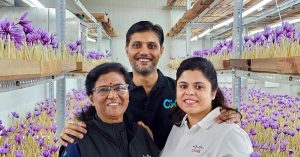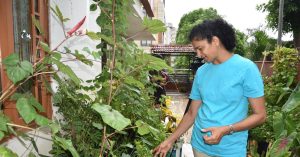In Conversation: Becoming Organic Farmers in Karnataka Seems to Be the Best Choice This Couple Made
“We are not the waking up at the crack-of-dawn sort of people. Unless of course, we have vegetables to send out or have elephants visiting the farm, in which case we pretty much stay up the entire night.”

To what lengths would you go to consume organic produce?
I would perhaps find a store near me that sells such produce and also look for restaurants that use organic products to cook their meals. Would I go so far as to start farming? I am not so sure.
Meet Anjali Rudraraju and Kabir Cariappa, a couple in Karnataka who have created their little organic haven, which they call ‘Yarroway Farm.’
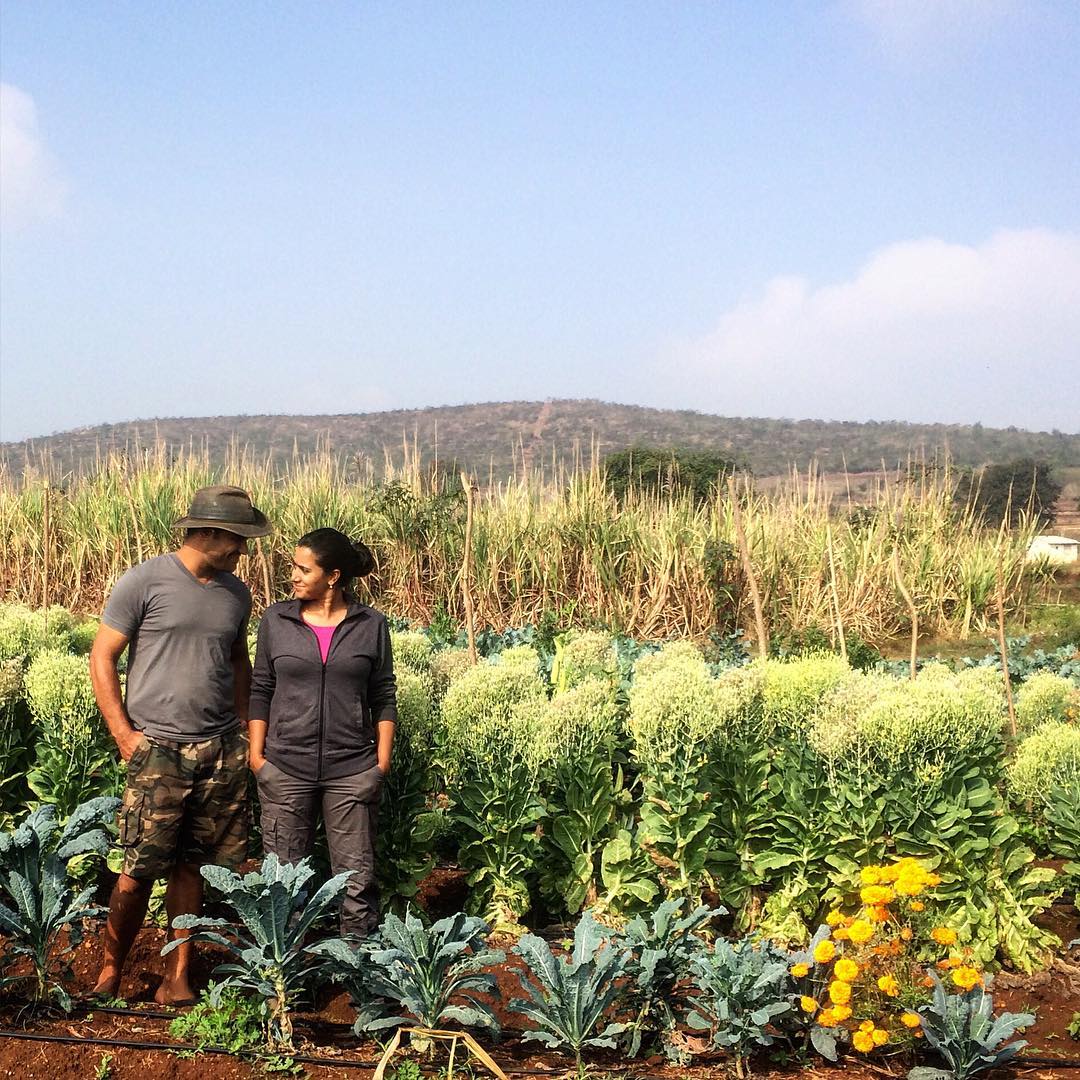
Photo Source: Yarroway Farms Instagram
The farm gets it name from the resilient yarrow plant that has been growing on the farm over the years and has restored the farm with its healing properties.
Speaking to this couple made me question many of the notions I had about rural living, farming, and organic food.
Kabir grew up on a farm, where he was home-schooled by his parents. His parents, Juli and Vivek Cariappa have been practising sustainable farming for over three decades now. So it would be right to say that Kabir knew no other way of farming.
For Kabir, the farm is a living entity.
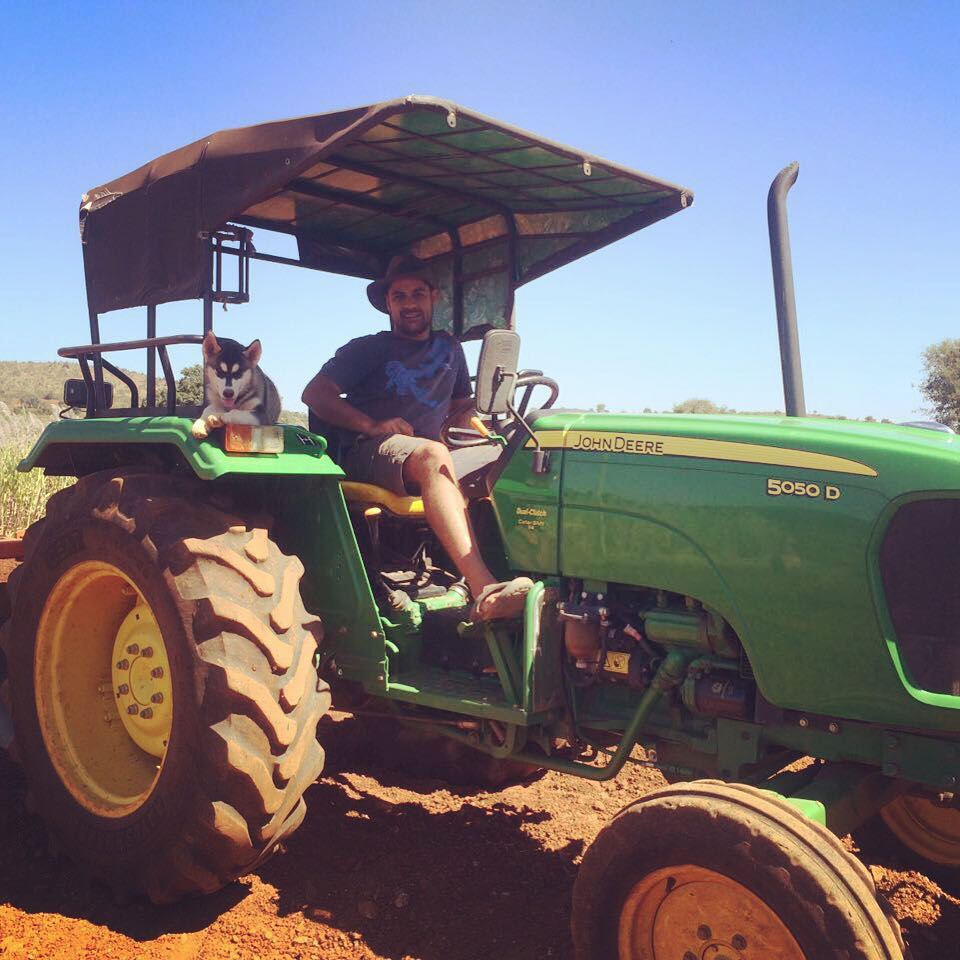
Photo Source: Yarroway Farm’s Instagram
Anjali, on the other hand, grew up in Hyderabad and wasn’t exposed to farming the way Kabir was. After she completed her graduation in Hyderabad, she flew to New York for her Master’s and continued to stay there for over a decade, working in the financial sector.
Speaking to the Better India, this couple shared with us their views and experiences on various topics ranging from their life at the farm, to organic farming, to inculcating this habit in the next generation.
When asked what made her come back to India, she says, “I wanted to leave my corporate life because it did not make sense anymore to chase the next promotion, plan the next holiday, and just follow a rather mundane cycle of life.”
“Living a simple life, close to nature, and away from societal pressures and the city life is what I wanted.”
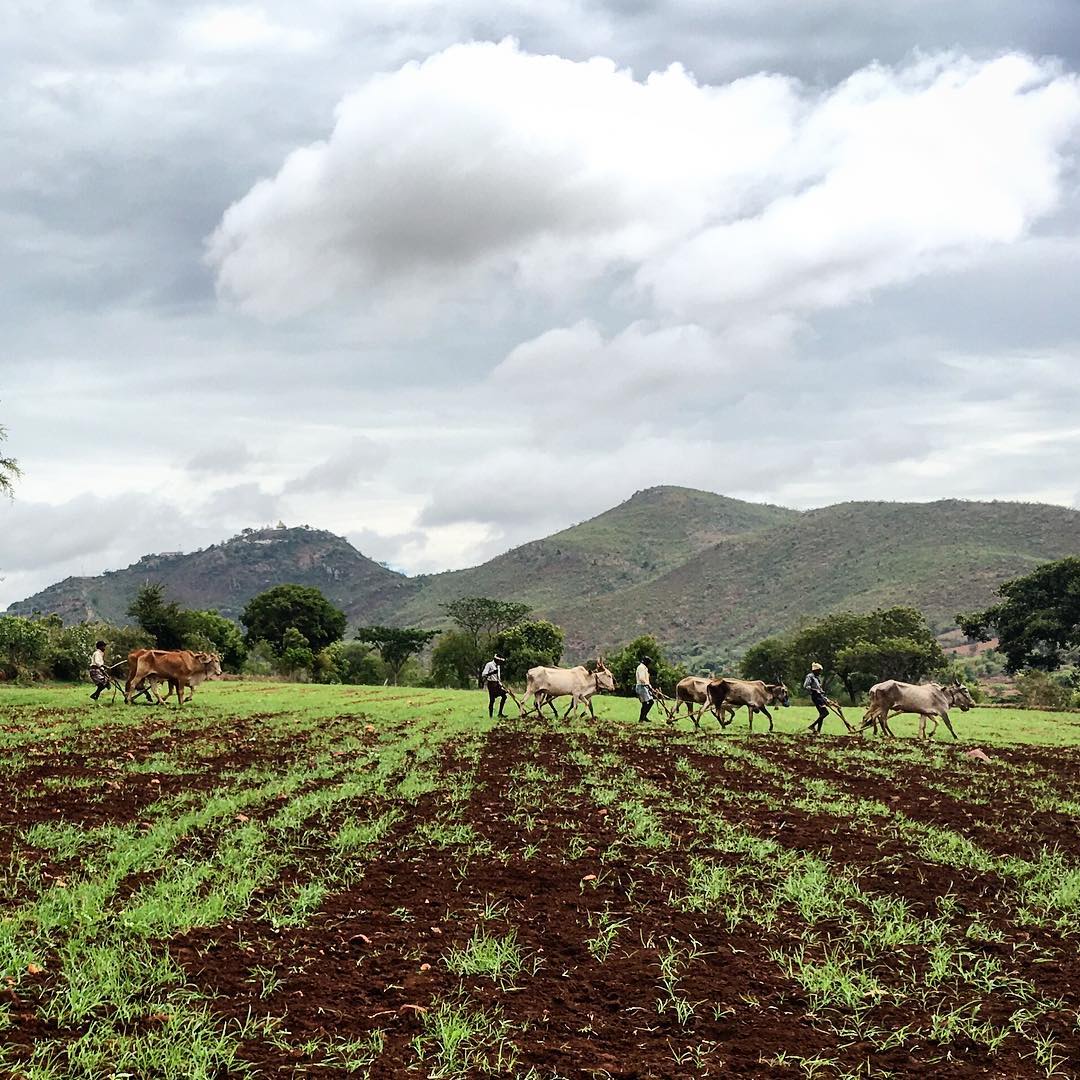
Photo Source: Yarroway Farm’s Instagram
After she returned to India, Anjali travelled across India and in particular went to many of the ‘rural’ parts of India. “If you have been to the Himalayas, you will know what I am saying about it. It has the innate ability to make you feel so humble and grounded. That is what happened to me,” she says.
You may also like: How A Couple, Who Moved to a Farm for a Slower Life, Ended up Starting a Village School
When she speaks about what she wants out of her life, you wonder why these things don’t figure in your list.
She says, “Clean water, fresh air, and an environment where food can grow as naturally as possible, given the soil conditions, is what I was looking for.”
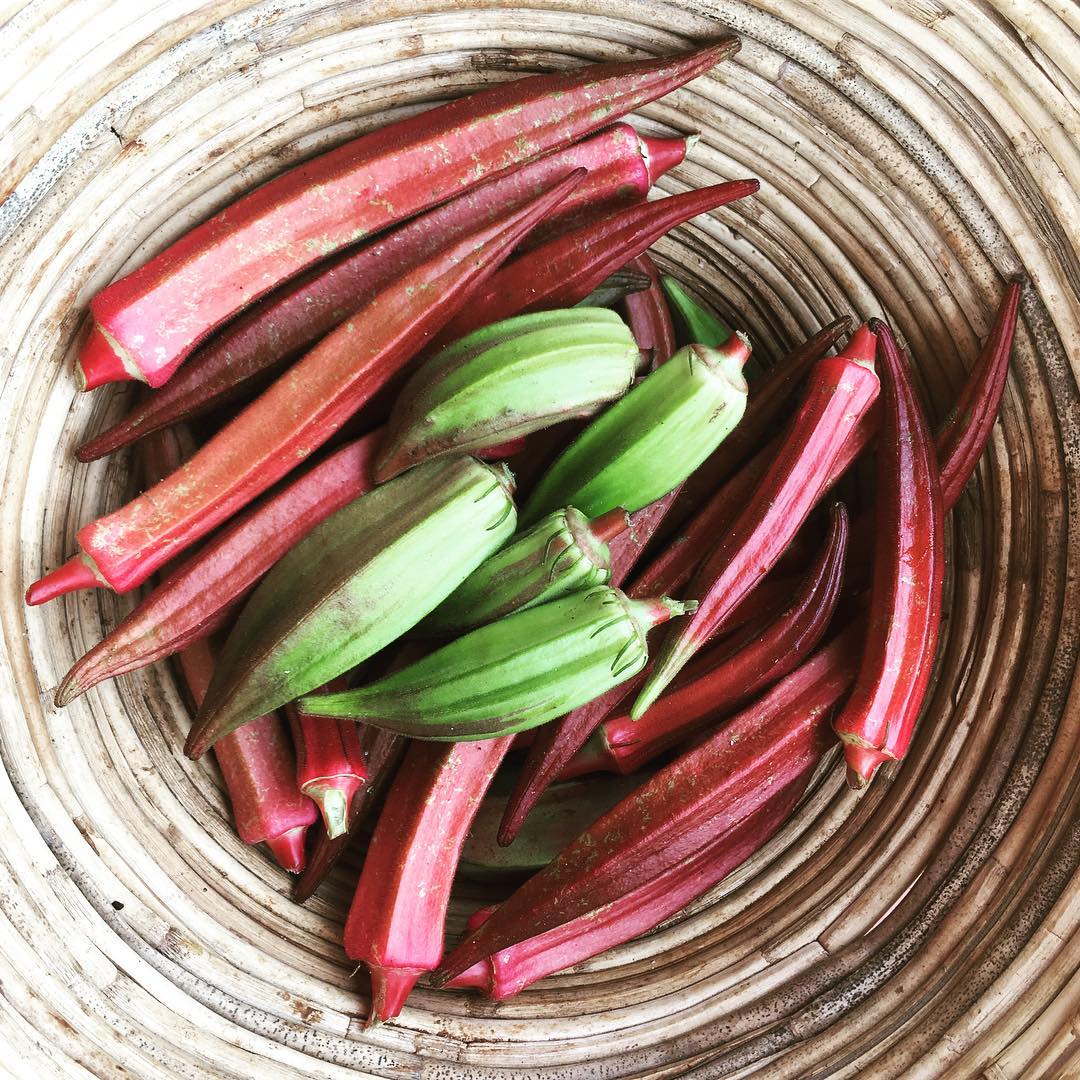
Photo Source: Facebook
To pursue this interest further, Anjali enrolled for an organic farming course where she not just got trained in the basics of farming but also met Kabir, whom she married.
“Given that I always did want to stay on a farm, away from the city, this made a lot of sense. I was unable to do this at my Hyderabad farm, unfortunately.”
Anjali and Kabir, both spoke of their experience of living at the farm. They said, “It is way safer to be living here than in a city. People are kind here. The security that the farm provides is tremendous. We know that we could live on the farm and not worry about anything. It gives us all we need.”
Kabir adds to this and says, “People look out for each other, people know one another. There is no floating population here, and that perhaps is the nicest part of being here. ”
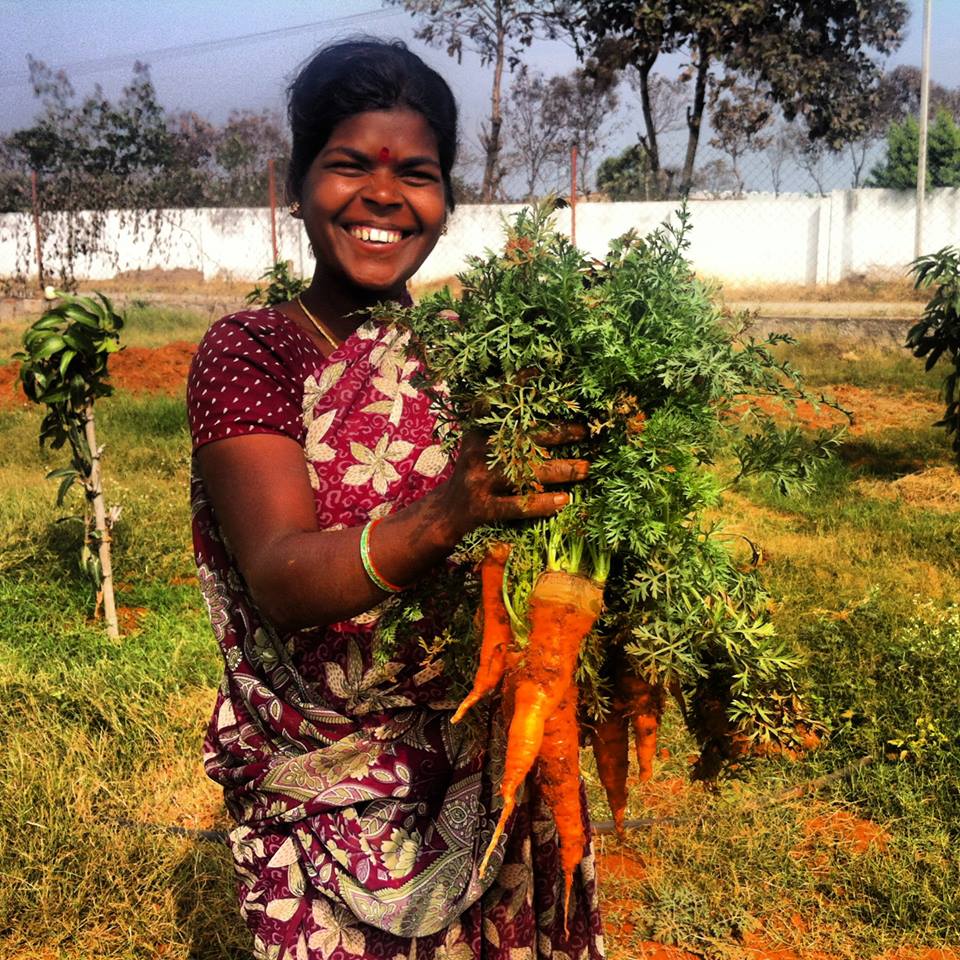
Photo Source: Facebook
Anjali says she wanted a life that had meaning. Having said that she also says, “Being on the farm and working on it is in no way an easy feat. It takes a lot of hard physical work on our part. Living on the farm isn’t about disconnecting from people living in the city. On the contrary, it is about defining what you want from your life. ”
You may also like: Teach Your Kids to Reduce, Recycle, and Reuse This Summer
Anjali and Kabir take us through a typical day at the farm:
We wake up at 7.00 a.m. says Anjali. Kabir is quick to add, “We are not the waking up at the crack-of-dawn sort of people. Unless of course, we have vegetables to send out or have elephants visiting the farm, in which case we pretty much stay up the entire night.”
The couple walks around the farm, checking if everything is in order. They then get some exercise done and then make themselves some breakfast.
Between 9.00 and 9.30 a.m. people working on the farm start coming in and the day begins by assigning work and getting along with the day.
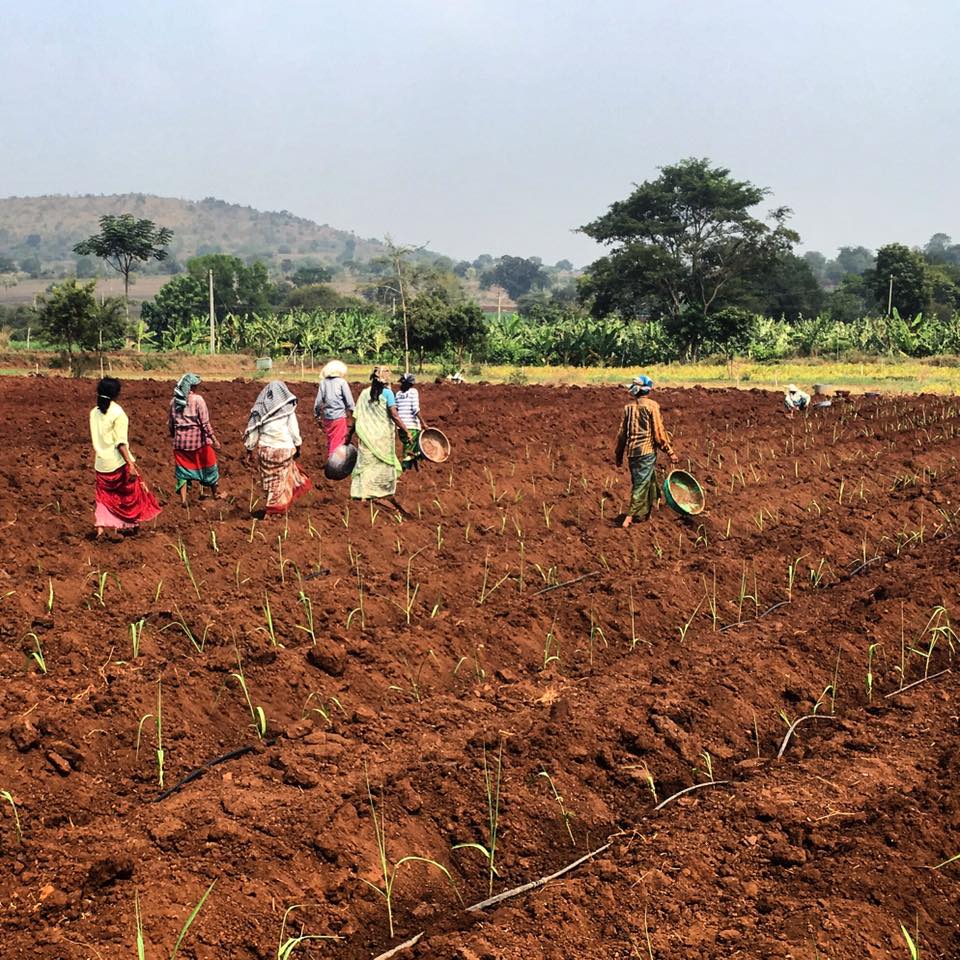
Photo Source: Facebook
A little after lunch, with half a day of work behind them, the couple settles in for a siesta. “We need that rest given the kind of work that we do on the farm. We are very hands-on the farm. Anything that we outsource to anyone else both Anjali and I can do ourselves,” Kabir said.
Kabir and Anjali manage the 50-acre farmland with the able help of about seven other people. “We as a family try to grow pretty much everything that we need and consume. Some of the things we grow enough to sell and some we retain for ourselves and the family,” says Kabir.
The great diversity of crops grown at the farm includes sugarcane from which jaggery is made, cotton, oil seeds which include sesame, sunflower, and peanuts, millets like ragi, bajra, jowar, foxtail, grains like rice and wheat. Pulses like toor, urad, moong, and even spices like turmeric, ginger, chilli, coriander, fenugreek, and mustard.
When asked what they go out and shop for, Kabir had a ready answer, “Salt, pasta, and fuel,” he says.
“Having said that we also eat what we have and grow, we don’t necessarily need to shop for anything.”
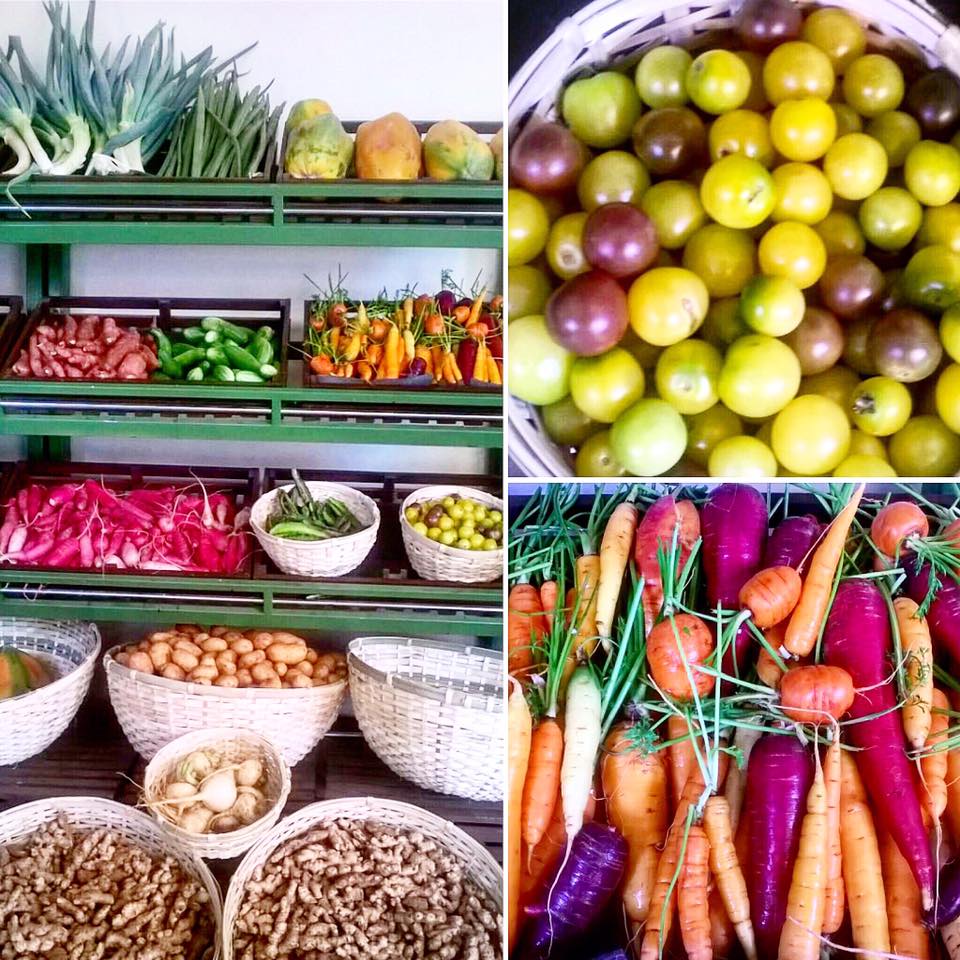
Photo Source: Facebook
Coffee, tea, and pepper they get from friends in Coorg and Assam with whom they barter rice and jaggery.
If only we could all move towards this level of self-sustenance, no demonetisation or market crash will adversely impact us.
If you wish to reach out to these good folks or are in Bengaluru and would like to place an order for your very own basket of goodness, do visit their website.
Like this story? Or have something to share?
Write to us: [email protected]
Connect with us on Facebook and Twitter.
NEW: Click here to get positive news on WhatsApp!
This story made me
- 97
- 121
- 89
- 167
Tell Us More
We bring stories straight from the heart of India, to inspire millions and create a wave of impact. Our positive movement is growing bigger everyday, and we would love for you to join it.
Please contribute whatever you can, every little penny helps our team in bringing you more stories that support dreams and spread hope.






